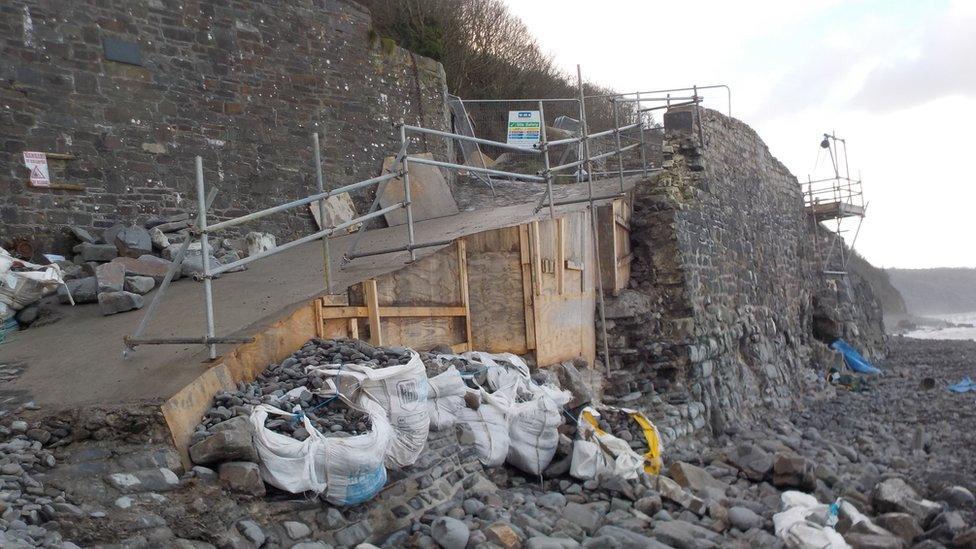Newlyn breakwater 'eco-block' trial begins
- Published
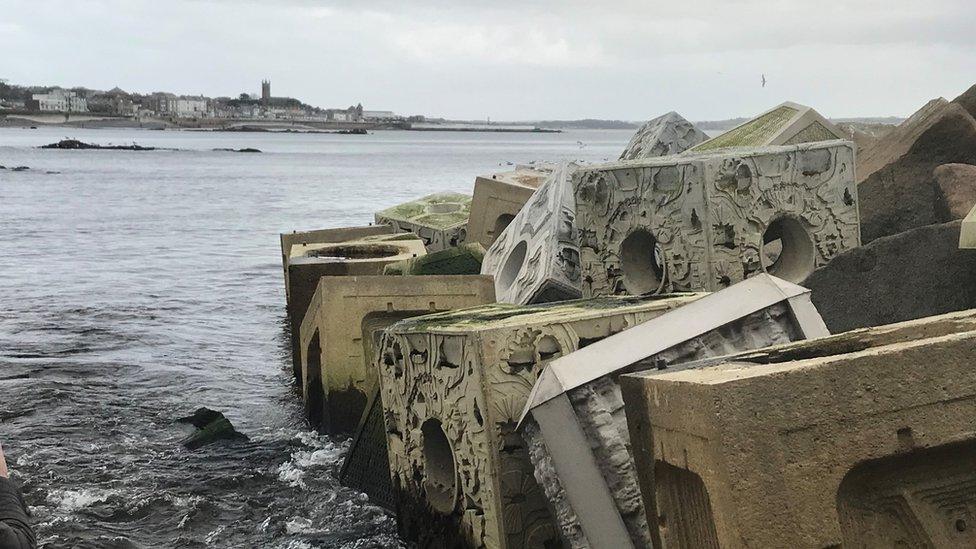
Some people have said the boulders look like discarded washing machines
Concrete eco-blocks have been placed on the seafront in west Cornwall as part of an environmental trial.
The 88 blocks have been delivered and installed along the rock armour breakwater at Newlyn.
The blocks are part of the Environment Agency's research into new designs for coastal armour which can also act as a habitat for marine life.
Some local people have questioned what the blocks are and claimed they look out of keeping with the area.
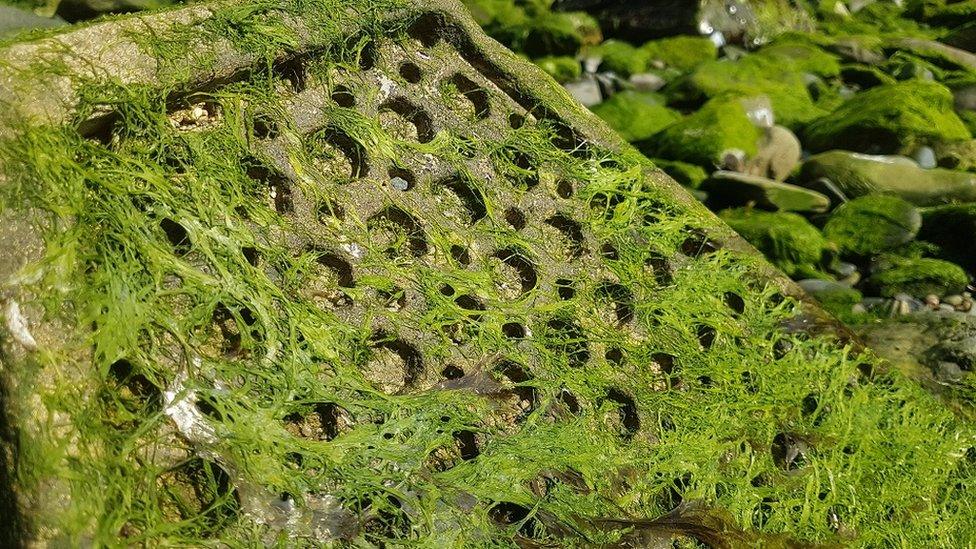
Small-scale eco-blocks put in place nearly two years ago were showing "encouraging signs of colonisation by marine life"
One passer-by from Penzance said "they look a bit like washing machines dumped down on the beach".
The Newlyn coastal research and development project will investigate the use of eco-blocks as a potential material to be used in future flood and coastal erosion risk management schemes nationally.
The project will monitor the eco-block's ability to enhance biodiversity and withstand a high-energy environment as well as the effect of block size and orientation, the Environment Agency said.
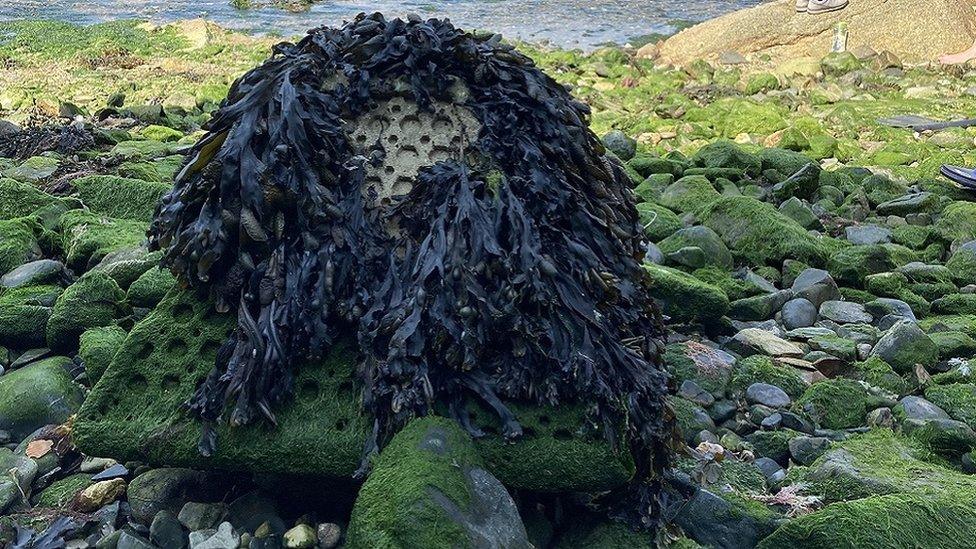
The eco-blocks should attracts marine life in time, experts said
Hilary Warner, who has lived in the area for more than 60 years, said to describe the blocks as an "eyesore" was an "understatement".
She said: "Why, oh why, couldn't they have just used plain natural stone... more in keeping with the surroundings and certainly better on the eye."
The Environment Agency said necessary permissions to carry out the work had been granted, including a licence from the Marine Management Organisation (MMO), as well as planning permission from Cornwall Council.
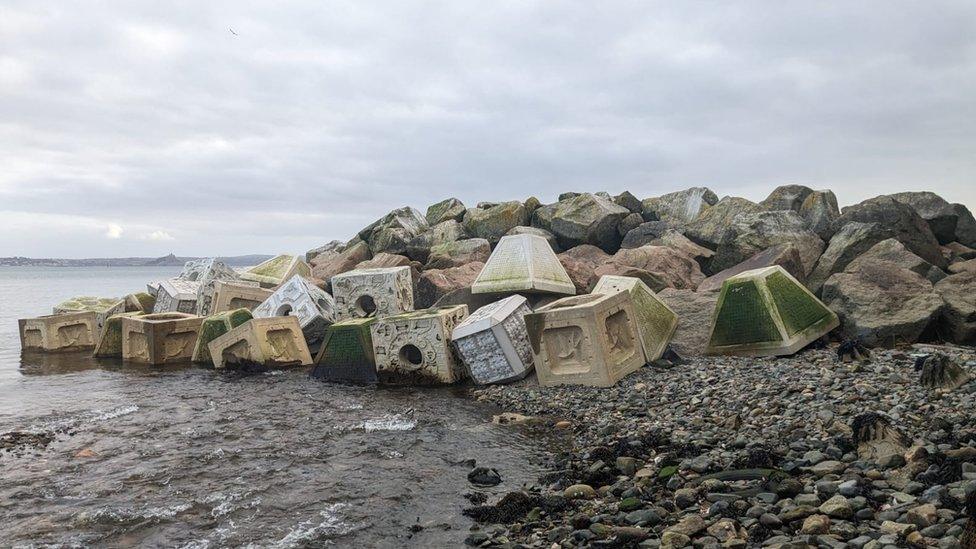
The boulders have provided a talking point in Newlyn
A spokesperson said: "Not everyone will like the look of the eco-blocks but we have been engaging with the community and all feedback is valuable.
"Over time, the blocks should become colonised by marine growth which, as well as adding an additional layer of natural protection, will help them to blend into the natural environment - and this is one of the aspects we will be monitoring."
Cornwall Councillor for Mousehole, Newlyn and St Buryan, Thalia Marrington, said: "I quite like them - they are fun.
"The Environment Agency did lots of work before with a consultation, they brought down big stands and explained about it all. When you understand about why they are doing it it's actually really exciting," she said.

Follow BBC News South West on Twitter, external, Facebook, external and Instagram, external. Send your story ideas to spotlight@bbc.co.uk, external.
- Published5 December 2022
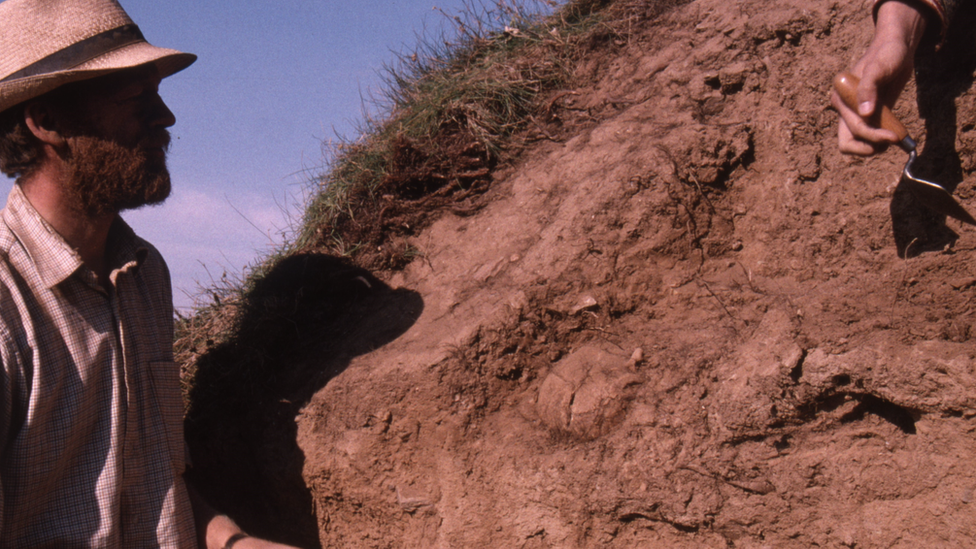
- Published7 March 2021
